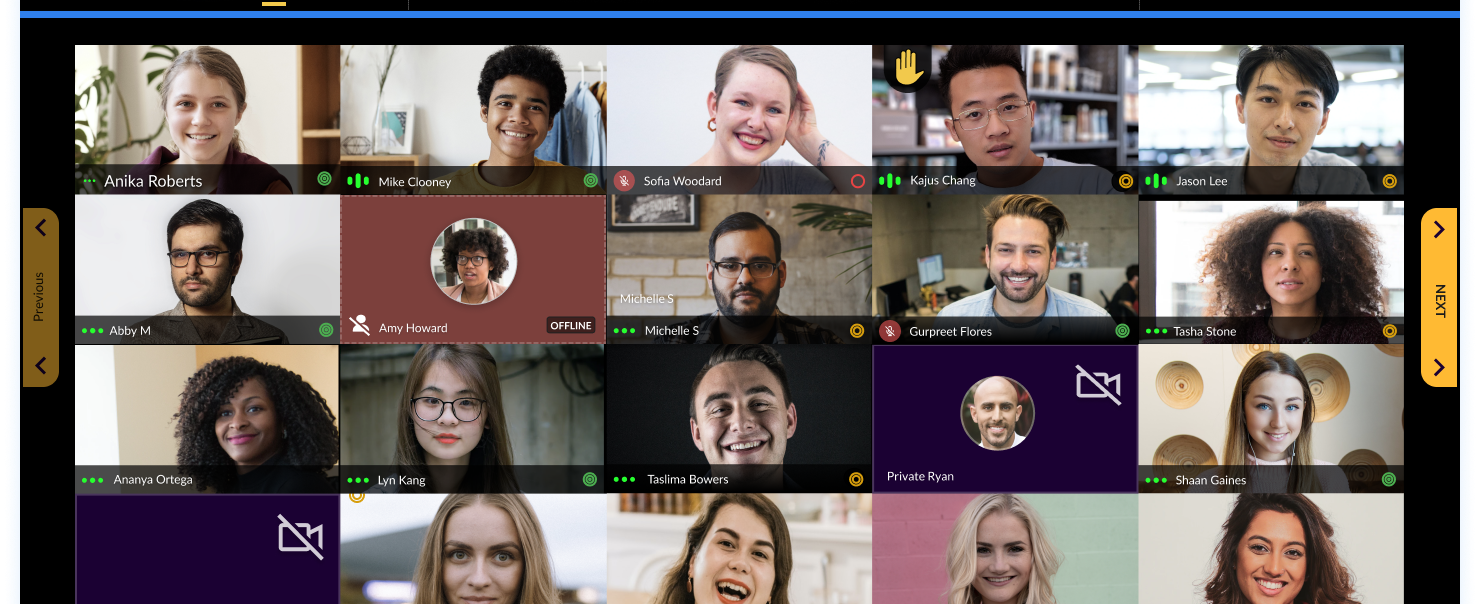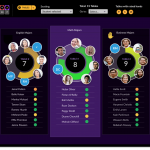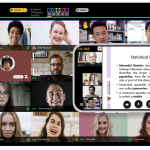
Articles
Editor’s Picks
Engageli Raises $33 Million Series A to Scale Its Hyped Instructional Platform, Plans to Go Live for the Fall Semester
By Henry Kronk
May 11, 2021
Engageli on May 11 reported it had raised a Series A funding round worth $33 million. While the online instruction platform has not announced any clients or institutional deployments, it has been piloted for months and the company says it will be used to teach higher education students more broadly as soon as this coming fall semester.
A common refrain in education circles points out that videoconferencing services like Zoom and Microsoft Teams, which many continue to use to teach online courses, were never designed for instruction. Engageli aims to correct that. Its online instruction platform contains dozens, if not hundreds, of features that were crafted specifically for educators to educate and for learners to learn.
“Basically, the biggest arguments we have engaged in is what features not to put in,” said Engageli CEO Dan Avida over videoconference on the Engageli platform. “We’re all good at coming up with different features. But we also designed it to be clear, to-the-point, and easy to adopt.”
The Series A comes on the heels of a $14.5 million seed round raised last October, bringing the company’s total financing to over $47 million. The round was co-led by Maveron and Corner Ventures. It was joined by Educapital and Good Friends—each of which participated in Engageli’s seed round—along with numerous unnamed angel investors.
https://twitter.com/ProfManagement/status/1327281357379211264
Engageli’s founding team is something along the lines of The Avengers in the edtech sector. Avida founded numerous startups along with the VC firm Opus Capital, which he continues to lead. He is joined by his wife, Stanford professor, and Coursera Co-Founder Daphne Koller. Serge Plotkin, another co-founder, is serving as Engageli’s CTO and VP of engineering. Plotkin founded Decru and Opus Capital with Avida. Jamie Nacht Farrell, a former executive at 2U and Trilogy, also was part of the founding team but has since left the company.
Most recently, Engageli has hired Adam Spivak, Giovanni Dubois, and Talia Kolodny as senior vice presidents of partnerships for various regions. This group has collective experience working at Coursera, Trilogy, 2U, and General Assembly.
The Engageli Platform
Engageli gave its first public demonstration of its platform at CES 2021 in January. It has been piloting its use with higher ed institutions since last fall.
The system is asymmetrical for teachers and learners. Students access the platform via their web browser. Teachers, meanwhile, use a separate app.

The platform allows educators to organize students into ‘tables’ for group work. They can also create ‘stations’ in which learners must complete a short activity or assignment. Inside each, students can talk or message privately amongst themselves. Instructors can drop in to these groups to observe, or can step out and wait until someone needs help.
To get the attention of teachers, students can ‘raise their hands,’ or click a button that alerts teachers that they need help. Learners can use the platform to work collectively. They can also annotate and save lecture material.
Teachers, meanwhile, can organize the entire class together in gallery view (as Zoom and Teams currently do) to deliver a collective lecture. With a function that uses QR codes to create buttons, they can also design quizzes and interactive activities. In addition, they can stream video from the web.
The Engageli platform also allows for synchronous and asynchronous learning. Teachers can record each lecture and save it to their learning management system for learners to view later.
It is also designed to accommodate hybrid learning environments. In-person students engage in class both face-to-face and online via laptop or mobile device. The class then progresses in real-time and lets remote students participate with the entire group.
The Pedagogical Background
Discussing inspirations for the pedagogical design of Engageli, Avida cites the tradition of Talmudic studies and a Stanford experiment on tutored video instruction conducted in the ‘70s. The former, Avida says, emphasizes group work and a space that allows for dissenting opinions.

The latter, though conducted before the era of online learning, draws important conclusions for multimodal education. In 1971, the soon-to-be dean of the Stanford School of Engineering Jim Gibbons wanted to investigate the effectiveness of televised lectures. Over more than 360 different experiments, Gibbons compared groups of students that learned via traditional lecture, pre-recorded video, and the combination of video and in-person tutor.
Learners using the final modality, which allowed them to pause the video and ask questions of their tutor, achieved the highest grades of the three groups.
Engageli seeks to allow for this instruction that Gibbons pioneered.
“It’s like a watch party,” Avida said. “We actually came up with the concept before Disney. Or maybe in parallel. But we started working on it about nine months ago. The idea is that, if one of the students rewinds, it rewinds for everybody else. If one of the students pauses, it pause for everybody else, and they can have a conversation. A TA can go between tables, helping students out as they need, no problem.”
Selling a New Platform Amid Budget Shortfalls
While the Engageli platform speaks for itself, it also faces headwinds. The coronavirus pandemic was not kind to higher education budgets in general. In addition, overall enrollment is expected to contract steadily over the coming decade. But most concerning of all, enrollment declines have accelerated since the beginning of the pandemic.
In April, the National Student Clearinghouse Research Center released preliminary data for overall enrollment. It believes that undergraduate enrollment is down 5.9% since the spring semester of 2020. In addition, declines accelerated after drops last fall. While graduate enrollment is up, it doesn’t make up for the overall loses.
While institutional funding has remained steady on average thanks to the CARES Act stimulus, many schools are not in a position to shop around for new products and services.
Avida, however, contends that, with the systems that Engageli replaces, it can be a cost-saving measure.
“We’re very sympathetic to the situation universities find themselves in,” Avida said. “We’re long-term thinkers, we view this as a long-term partnership with institutions. We can replace things like videoconferencing, polling, and lecture capture. It’s all inclusive.”
“We’re very excited about the future,” Avida continued. “We really think that the world is going multimodal, hybrid, both asynchronous and synchronous. We’re building a platform that supports it with all these capabilities.”
Media courtesy of Engageli.









My school just got Summit Learning this year and almost the whole grade is failing.